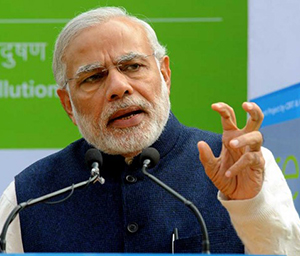Dehradun, Dec 27: Hitting back at Rahul Gandhi's charge of helping big corporates and the rich, Prime Minister Narendra Modi today said his government is focused on working for the poor and asserted that demonetisation has destroyed in one stroke black money, terror funding as well as human and drug trafficking.
Targeting parties who are opposing the note ban, he claimed some people are upset as his decision has struck the "ring leader of thieves".
Addressing BJP's 'parivartan maharally' in poll-bound Uttarakhand, Modi appeared to rebut Rahul's charge when he said that while the UPA government's move to raise the number of subsidised cylinders from 9 to 12 was projected as momentous, his government gave gas cylinders to five crore people below poverty line.
"18,000 villagers were living in 18th century without electricity... in thousand days, we have electrified 12,000 villages. Work on remaining 6,000 is on. Is this working for rich or empowering the poor," he said.
With the decision to demonetise Rs 500 and Rs 1000 notes, the black money stored in cupboards and under mattresses is now coming to banks and to the people, he said, adding he is fulfilling his duty of a 'chowkidar' (watchman) to get rid of black money and "dark hearts" which have ruined the country.
"In some, corruption is in the blood. They used back door to convert the money and thought Modi cannot see.
"But we knew and now they are being caught," he said referring to various raids by law enforcement agencies on black money hoarders.
Describing note ban as a "cleanliness drive", he thanked the people for standing by him. He also said the move is aimed at empowering the people and to give them a bright future.
"I am fighting to make the honest empowered," Modi said adding that his November 8 decision has dealt a devastating blow to black money and terror funding.
The decision is not being liked by some people as he has struck directly at the "ring leader of thieves" (choron ka sardar), the Prime Minister said.





Comments
Shut your mouth ya Fenku....
There is no such TERRORISM in INDIA . which needs funding .....in Fact Gvernment is funding Terrorism ...and when came to power it wanted more funds so introduced Demonetisation .......clear
Add new comment